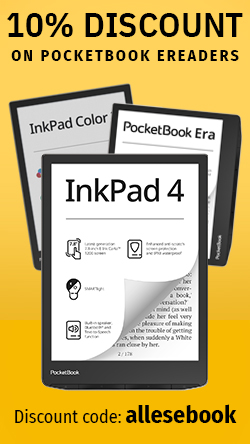Tablet Sales Surpass Laptops for the First Time Amidst Growing Popularity
With the iPad, Apple sparked a tablet boom a few years ago which, according to analyst estimates, will soon lead to the demise of eBook readers. However, the market sees things quite differently, as dedicated reading devices continue to enjoy great popularity. What’s often not mentioned in analyses of the eBook reader market is the fact that tablets are actually competing less with eReaders and more with traditional computers.
PC manufacturers have been suffering for years due to the rise of tablets, leading to declining sales in the desktop PC and notebook sectors. The latest sales figures show just how far this situation has advanced.
Tablet Sales Reach New Heights
In the first half of 2013, private demand for tablets in Germany more than doubled, rising by 109.6 percent compared to the previous year, from 1.21 million devices sold to this year’s 2.35 million tablet sales. In the past quarter, even more tablets were sold than notebooks.
In contrast, 2.71 million notebooks were sold in the first half of 2012, but this year only 2.39 million were sold. This represents a decline of 12.1 percent. Desktop PC sales have also fallen by 7.4 percent.
While tablet sales have skyrocketed, it’s hardly surprising that the average price has significantly dropped. Last year, the average price paid for a tablet was 474 euros, whereas this year it’s only 356 euros.
Tablet as a Jack of All Trades
Although tablets are eating into the sales figures of nearly all adjacent product categories, I believe the concerns and predictions about complete cannibalization of other electronics sectors are exaggerated. Tablet PCs can conveniently be used for a variety of tasks—listening to music or watching movies, surfing the internet, reading, or even for text editing, spreadsheet work, photo editing, and other complex tasks.
However, the fact is that tablets are mostly used in addition to other devices, particularly for engaging in short-term activities, which is especially practical due to their ever-improving mobility. It’s important to remember, though, that while tablets can handle many things, they don’t excel at all of them. Thus, it’s unlikely that tablets will soon replace notebooks or eBook readers.
The most prominent example of this—and I’m not tired of mentioning it—is Barnes & Noble. The former largest US bookseller banked everything last year on two new tablets, expecting that the devices would be accepted as reading devices and could replace the Nook eBook reader. However, that hasn’t happened, as book lovers apparently still prefer reading on dedicated reading devices. The result: Despite massive price reductions, Barnes & Noble was unable to sell enough tablets and recorded additional multi-million losses. The bookseller will likely introduce a new eBook reader and only one new tablet in the coming weeks.
Turbulent Christmas Sales
However, you don’t need a crystal ball to predict a particularly turbulent Christmas season. In recent weeks and months, several new high-profile tablets have been unveiled, all of which are vying for a spot under the Christmas tree. Google, Amazon, Tolino, Apple, PocketBook, and Kobo are just a few of the many tablet providers. Additionally, many devices are now being cheaply imported from Asia and marketed under various brand names by different companies—typically priced between 100 and 150 euros.
The selection for customers is therefore larger than ever, and this will likely be reflected in further increased sales figures in the coming months.
